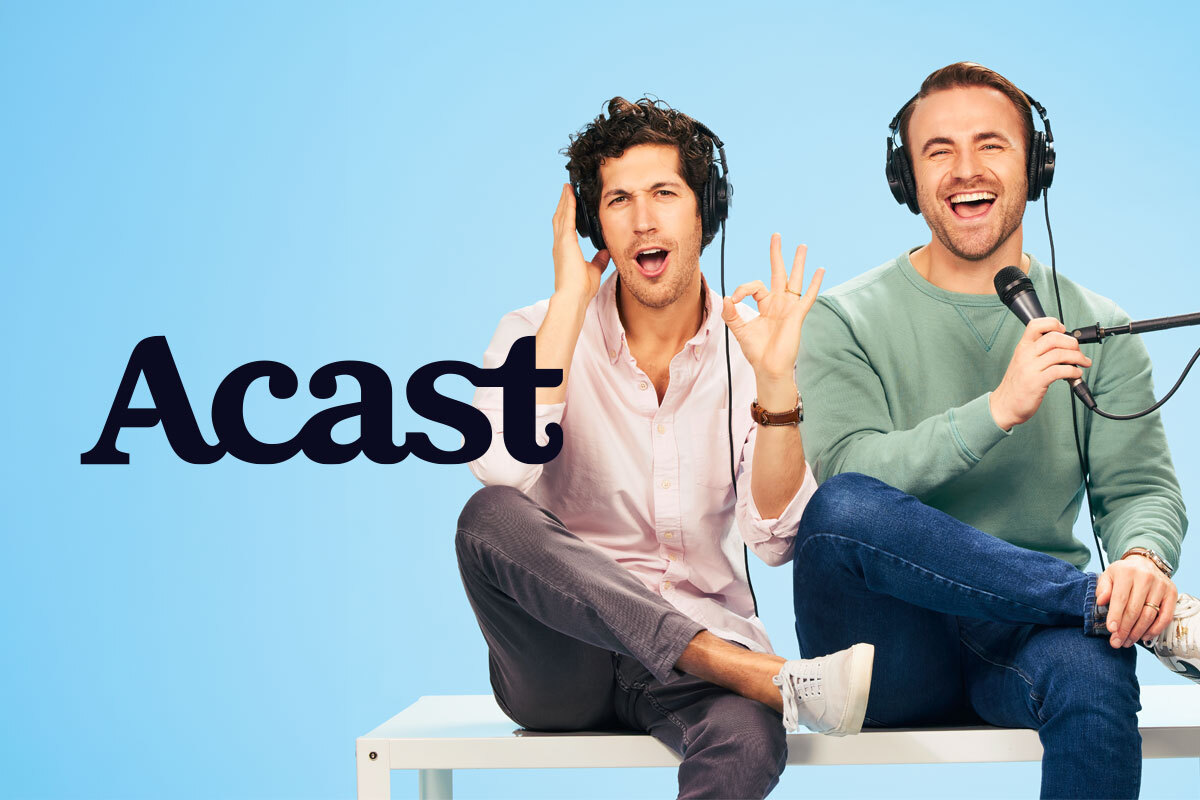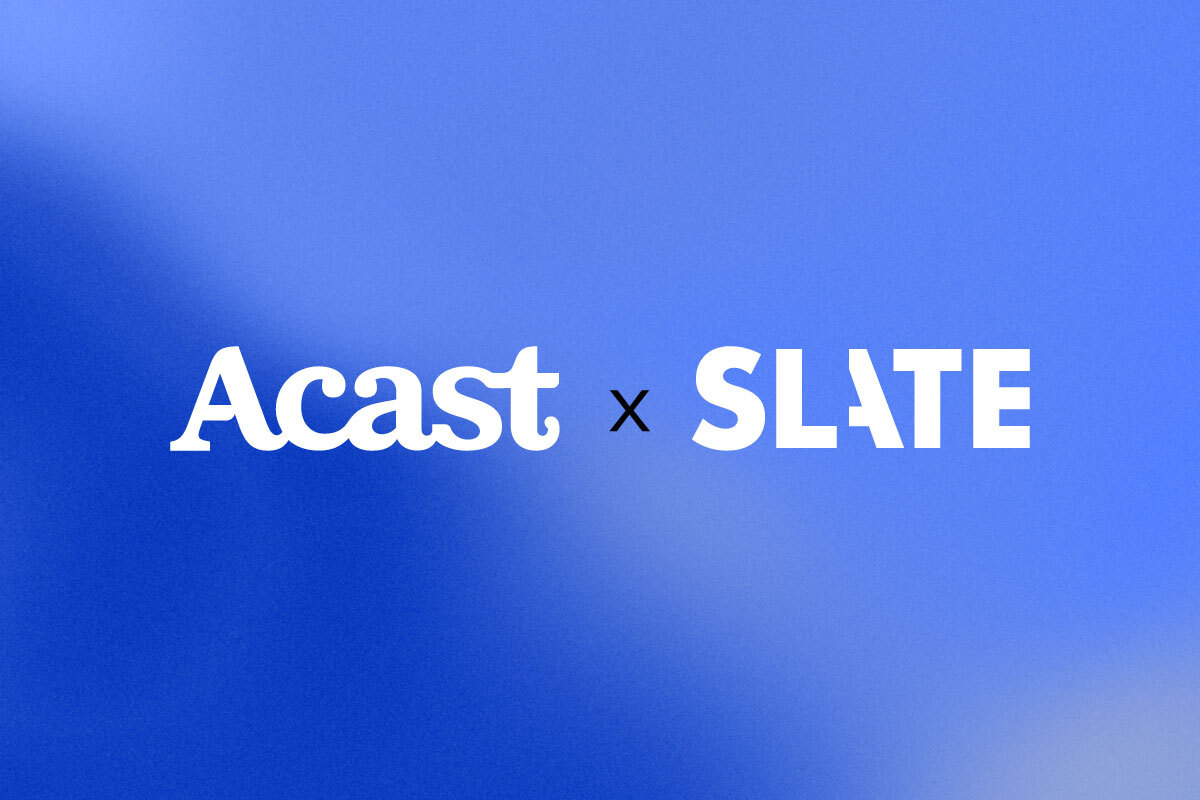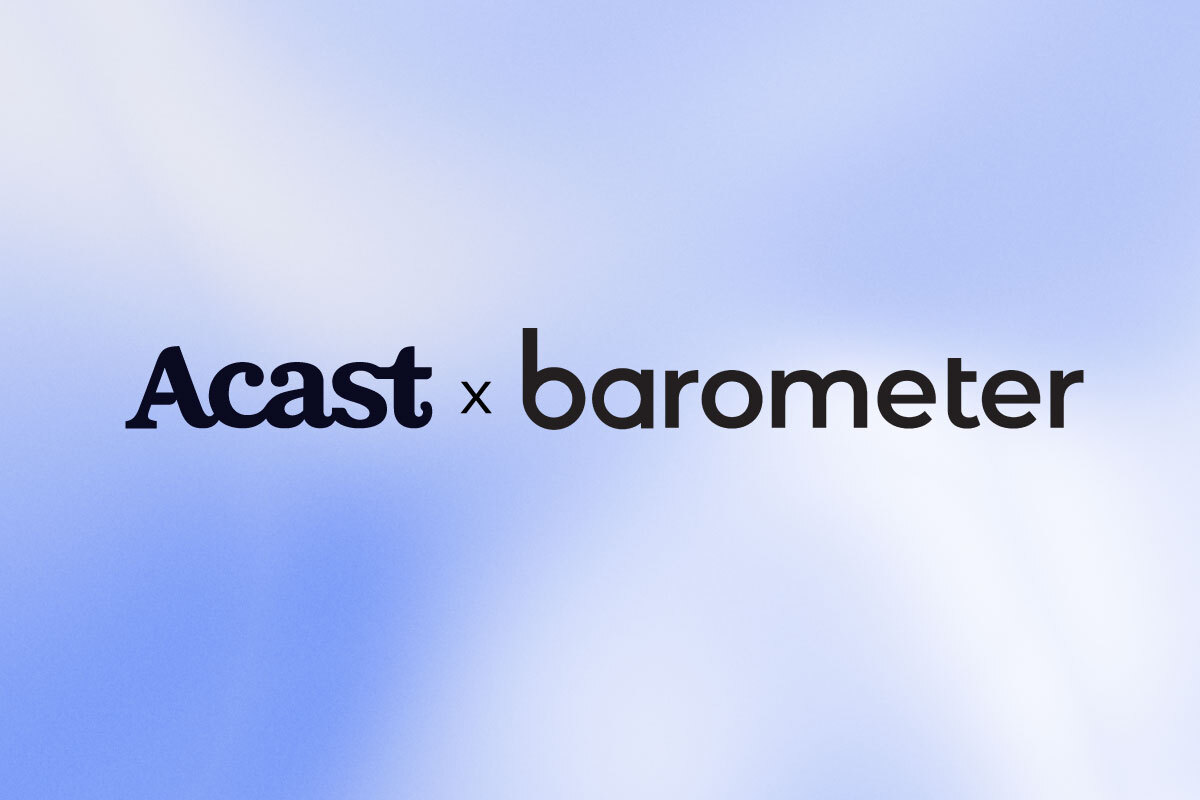Why Podcasts are Time Well Spent for Audiences and Businesses.

If you've ever caught yourself in a zombie-scroll through social media and wondered, "Wow, how much time did I just lose?"—you're definitely not alone.
Apps like TikTok and Instagram have elevated feed-looping to an artform, keeping us hooked with their finely-tuned algorithms. Sure, we all love a serotonin hit from the latest #SundayReset video or latest viral pasta recipe, but do we really come away feeling it was time well spent?
Podcasts, on the other hand, have emerged as auditory sanctuary in the fevered media landscape. Whether it's connecting with hosts who just 'get' you and your niche interests or getting long-form edutainment on any subject under the sun, podcasting is providing the positive mental nourishment so many of us crave.
As a marketer, you live and breathe 'time spent' metrics—from website stickiness to video engagement. But have you considered whether that time was spent positively or enriched the user at the other end? That’s a precious commodity in marketing today.
If you're looking for a prime spot for your brand to resonate, podcast advertising should be top of your media plan. Let's explore why podcasts are an oasis for audiences and a brand-building opportunity for savvy marketers.
The Podcast Therapy Session
In a recent Acast study, podcast listeners reported this medium benefiting their well-being far more than other media like cable TV - over 3X as much, in fact. On top of this, a staggering 92% of respondents said podcasts provide a mental health boost.
This isn't just a number—it's a growing recognition of podcasts as an intrinsically wellness-promoting medium. Just ask Rob Deering, comedian and host of the Running Commentary podcast:
“We started Running Commentary because we felt that as we ran talking together, over time our thoughts became looser, wider, and more interesting,” he says. “I think that because podcasts encourage longer conversations, people tend to dig a little deeper and share more of themselves - whether the podcast is specifically geared towards wellness and insight or not.”
That intimacy and authenticity makes podcasts a true companion that TV or social can't match. In our loneliness epidemic, the unvarnished voices of podcasters provide nourishing company in a direct, personal way.
Authenticity is the Secret Sauce
Trust and authenticity is woven into the very fabric of the medium—those long-form, exploratory conversations that let listeners genuinely connect. Deering shares how this plays out for his own audience:
“We have had wonderful feedback from the show; it’s really inspiring how members of our podcast audience can feel close to us in ways our stand-up comedy audiences rarely have!” Deering notes. “Sometimes people say that just laughing at something silly we’ve said has got them through a tough run, but we’ve also had direct messages from people who have lost someone close to them and felt a real connection when we’ve talked openly about grief.”
This ability to cultivate real empathy is podcasting's superpower, providing a cathartic space for listeners to process their own experiences through a lens of community and support.
A Brand-Safe Respite
From the brand side, podcasting's positive, engaged environment is golden. Despite the freeform authenticity, 87% of listeners report the content never offends or aggravates them. It's a rare brand-safe haven amid today's polarized media landscape.
This means an opportunity to connect with audiences in a deeply trusted, cherished space. But as Deering notes, succeeding requires respecting the medium:
“We have always enjoyed writing and recording sponsorship reads ourselves, for brands we genuinely like, blurring the line - in a positive way - between the podcast and the ads around it,” Deering explains. “In general, I think the cynicism which one sees and hears in TV and radio advertising—that can be really effective there—is less appropriate in the world of podcasts; you’re chipping in in a conversation between friends, so keep it upbeat and don’t sour the mood.”
How to Get Podcast Advertising Right
To win in this space, brands should follow these best practices:
1) Authenticity - Choose podcasts aligned with your brand values that resonate with the show's essence.
2) Integration - Collaborate with Podcasters so host-reads feel like organic extensions of the conversation through personal stories and product experiences.
3) Respect the Space - Avoid disruptive tactics that violate the sacred listening sanctuary.
4) Positivity - Maintain an uplifting tone that contributes to podcasting's optimistic atmosphere.
In our cacophonous digital world, podcasts stand out as an indispensable wellspring of positivity. For listeners, they're a soul-reviving refuge. For brands, they open the door to genuine connection through meaningful advertising.
If you've ever caught yourself in a zombie-scroll through social media and wondered, "Wow, how much time did I just lose?"—you're definitely not alone.
Apps like TikTok and Instagram have elevated feed-looping to an artform, keeping us hooked with their finely-tuned algorithms. Sure, we all love a serotonin hit from the latest #SundayReset video or latest viral pasta recipe, but do we really come away feeling it was time well spent?
Podcasts, on the other hand, have emerged as auditory sanctuary in the fevered media landscape. Whether it's connecting with hosts who just 'get' you and your niche interests or getting long-form edutainment on any subject under the sun, podcasting is providing the positive mental nourishment so many of us crave.
As a marketer, you live and breathe 'time spent' metrics—from website stickiness to video engagement. But have you considered whether that time was spent positively or enriched the user at the other end? That’s a precious commodity in marketing today.
If you're looking for a prime spot for your brand to resonate, podcast advertising should be top of your media plan. Let's explore why podcasts are an oasis for audiences and a brand-building opportunity for savvy marketers.
The Podcast Therapy Session
In a recent Acast study, podcast listeners reported this medium benefiting their well-being far more than other media like cable TV - over 3X as much, in fact. On top of this, a staggering 92% of respondents said podcasts provide a mental health boost.
This isn't just a number—it's a growing recognition of podcasts as an intrinsically wellness-promoting medium. Just ask Rob Deering, comedian and host of the Running Commentary podcast:
“We started Running Commentary because we felt that as we ran talking together, over time our thoughts became looser, wider, and more interesting,” he says. “I think that because podcasts encourage longer conversations, people tend to dig a little deeper and share more of themselves - whether the podcast is specifically geared towards wellness and insight or not.”
That intimacy and authenticity makes podcasts a true companion that TV or social can't match. In our loneliness epidemic, the unvarnished voices of podcasters provide nourishing company in a direct, personal way.
Authenticity is the Secret Sauce
Trust and authenticity is woven into the very fabric of the medium—those long-form, exploratory conversations that let listeners genuinely connect. Deering shares how this plays out for his own audience:
“We have had wonderful feedback from the show; it’s really inspiring how members of our podcast audience can feel close to us in ways our stand-up comedy audiences rarely have!” Deering notes. “Sometimes people say that just laughing at something silly we’ve said has got them through a tough run, but we’ve also had direct messages from people who have lost someone close to them and felt a real connection when we’ve talked openly about grief.”
This ability to cultivate real empathy is podcasting's superpower, providing a cathartic space for listeners to process their own experiences through a lens of community and support.
A Brand-Safe Respite
From the brand side, podcasting's positive, engaged environment is golden. Despite the freeform authenticity, 87% of listeners report the content never offends or aggravates them. It's a rare brand-safe haven amid today's polarized media landscape.
This means an opportunity to connect with audiences in a deeply trusted, cherished space. But as Deering notes, succeeding requires respecting the medium:
“We have always enjoyed writing and recording sponsorship reads ourselves, for brands we genuinely like, blurring the line - in a positive way - between the podcast and the ads around it,” Deering explains. “In general, I think the cynicism which one sees and hears in TV and radio advertising—that can be really effective there—is less appropriate in the world of podcasts; you’re chipping in in a conversation between friends, so keep it upbeat and don’t sour the mood.”
How to Get Podcast Advertising Right
To win in this space, brands should follow these best practices:
1) Authenticity - Choose podcasts aligned with your brand values that resonate with the show's essence.
2) Integration - Collaborate with Podcasters so host-reads feel like organic extensions of the conversation through personal stories and product experiences.
3) Respect the Space - Avoid disruptive tactics that violate the sacred listening sanctuary.
4) Positivity - Maintain an uplifting tone that contributes to podcasting's optimistic atmosphere.
In our cacophonous digital world, podcasts stand out as an indispensable wellspring of positivity. For listeners, they're a soul-reviving refuge. For brands, they open the door to genuine connection through meaningful advertising.





